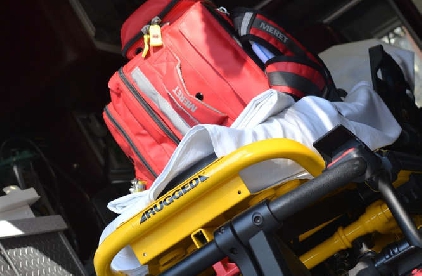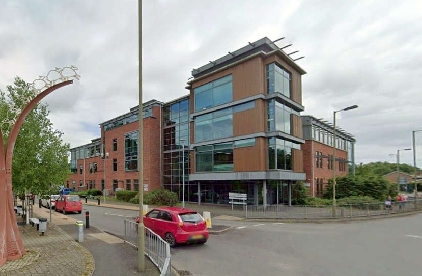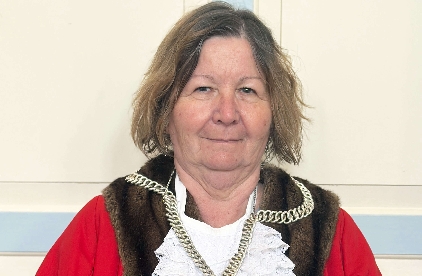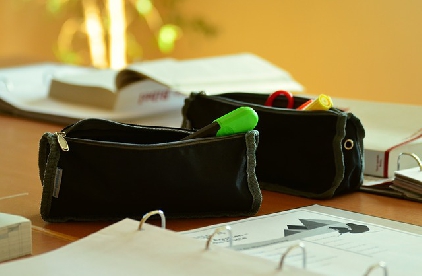
Hospital handover delays are causing tension between staff at emergency departments and paramedics, an ambulance board meeting has heard.
The West Midlands Ambulance Service (WMAS) board met on Wednesday and heard that delays in handovers has seen a drop in the productivity of paramedics considerably compared to four years ago.
Director of performance and improvement, Nathan Hudson, said that in 2019 on average during a 12 hour shift an ambulance would go to between seven and eight jobs. However, now paramedics are going to an average of four jobs per shift.
“The activity of people phoning for our service is not the issue, neither is the resources but it’s about that productivity and being able to get out to patients,” he told the board meeting.
“We’re losing for each 12-hour ambulance probably three jobs per shift. That’s significant when we have 82 vehicles at hospitals and 27 of those waiting over 60 minutes. It’s a real issue for us.
“We have to take mitigating action and have put extra hours going into winter to mitigate that patient safety risk.
“The main area of concern going into winter is the uptake of flu, Covid and norovirus which is causing the bed closures or restrictions which has a knock-on effect at the front door.”
Chairman of the committee Ian Cummings says that the delay in transferring patients can then result in increased tensions between staff.
“One of the challenges that hospital handover creates is that it starts to create an additional tension between emergency department staff and our frontline crews,” said Mr Cummings.
“Those relationships in years gone by used to be really good, close formed and fantastic.
“Our emergency crews are wanting to offload patients as soon as they possibly can in the interest of that patient’s quality of care, privacy and dignity.
“The emergency department is saying that we can’t take them as we’re full and it starts to build a tension which is really unfortunate.
“We’re all in the same boat here, the A&E departments aren’t sat there twiddling their thumbs and not taking patients, they are rammed. We need to find a way of destressing some of these situations for the benefit of our staff. “
WMAS chief executive Anthony Marsh said that some of the treatment of paramedics by hospital staff can be ‘perceived as bullying’.
“To lock the door and say wait outside, they (paramedics) perceive that as bullying and it’s not the role that they signed up to,” said Mr Marsh. “It’s not the job that we trained them to do either.
Mr Hudson added it wasn’t just about the staff on the frontline but also the managers whose workload increase due to the hours their staff are spending at hospitals.
He added that ambulance activity slightly up compared to the same point last year. He said that the ‘worrying trend’ was that they reached 22,000 jobs in September which they had reached for October with six days remaining.
Mr Hudson said that there is enough resource hours in the system, but they were needing to take ‘excessive action’ to offset that against extended risk to patients going into the winter.
He added that there were 162 graduate paramedics starting, with 112 coming in before the start of January.
“The issue is availability of hours and them having the availability to respond to patients,” added Mr Hudson
“The fact that we are losing anything between 10-15% now of my total overall daily output due to hospital delays means that is having a significant impact on our ability to respond.”
Board member Mashtaq Khan fears that the public might take their frustrations out on the paramedics if there is a shortage of ambulances.
He added: “Out of all the blue light services the ambulance were one of the ones who were always incredibly well received by patients and their families when they turned up.
“Obviously if your response times aren’t quite there then you’re going to feel the wrath of patients and their families. If you’re not able to respond within the timelines, then staff are going to be subject to a certain amount of pressure.”


 New scrutiny body to come at a cost of £2,000
New scrutiny body to come at a cost of £2,000
 Appeal after concern raised for woman in Leominster
Appeal after concern raised for woman in Leominster
 Police offer free child sexual exploitation training to hotel staff
Police offer free child sexual exploitation training to hotel staff
 Social landlord plans staff cuts
Social landlord plans staff cuts
 Town council hopes to ‘draw line in the sand’ over collapsed 13th century wall
Town council hopes to ‘draw line in the sand’ over collapsed 13th century wall
 Reform candidate responds to Green party challenge over business connections
Reform candidate responds to Green party challenge over business connections
 Estate plans place for nervous dogs to go for a walk
Estate plans place for nervous dogs to go for a walk
 More than 99% of children in Shropshire offered place at preferred primary school
More than 99% of children in Shropshire offered place at preferred primary school
